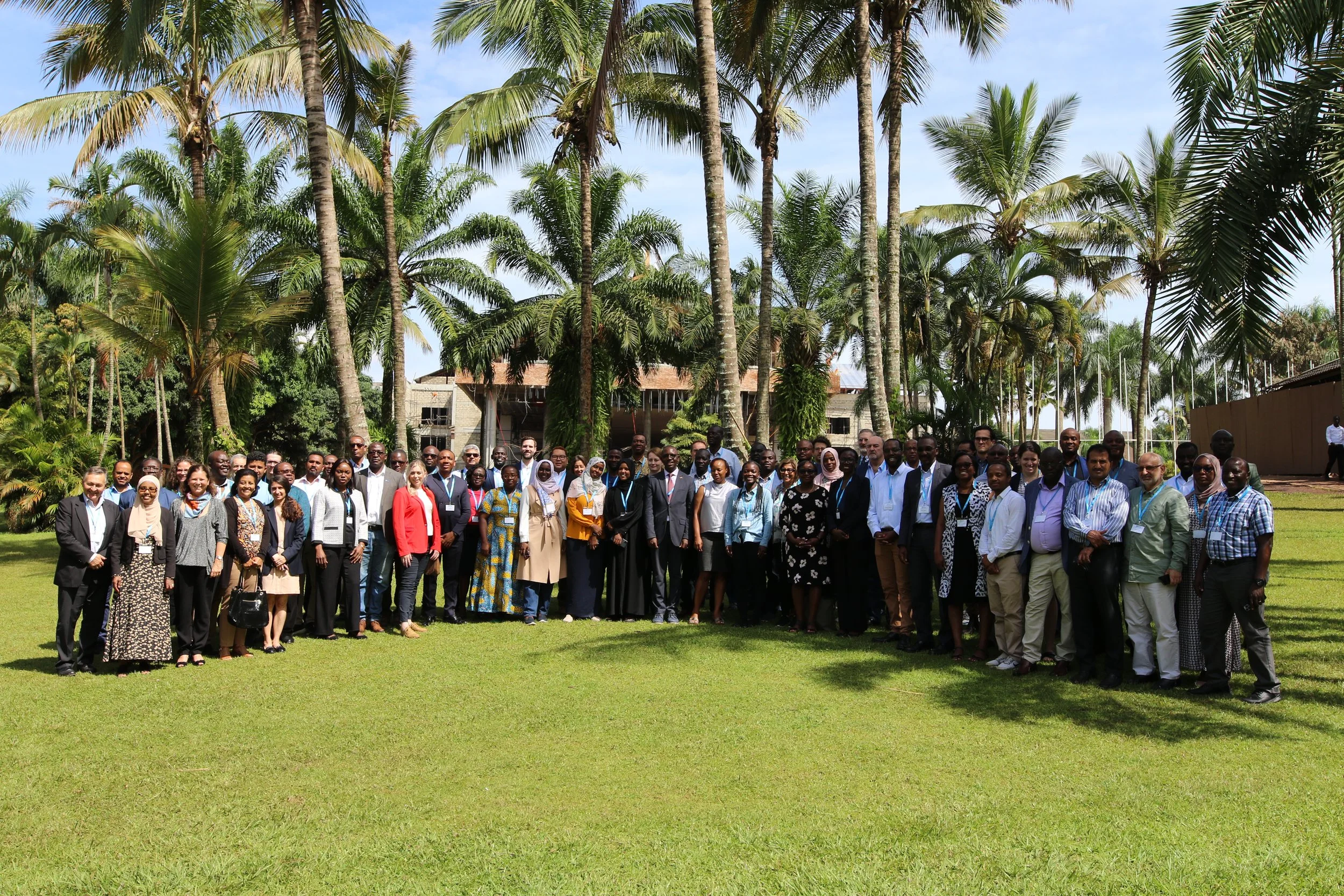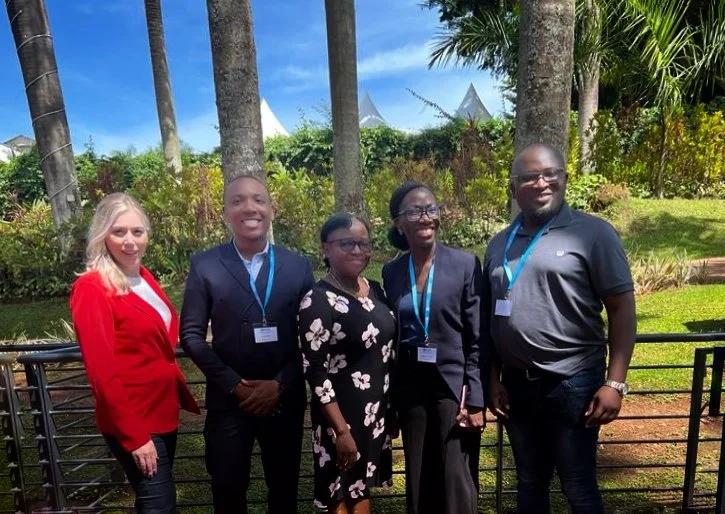MARC SE-Africa Makes a Landmark Debut at WHO's Critical Meeting on Antimalarial Resistance in Africa
Attendees of the Meeting of subregional networks of antimalarial drug resistance and efficacy surveillance in Eastern Africa and Horn of African countries 9-10 November 2023
Kampala, Uganda
November 7-10, 2023 - On the shores of Lake Victoria, Kampala, Uganda, MARC SE-Africa took a significant stride in the global arena at the WHO's critical meeting, marking a pivotal moment in the united battle against the rising tide of emerging antimalarial drug resistance in Africa. Confronting the urgent challenge in heavily affected regions, notably East Africa and the Horn of Africa, these meetings convened essential stakeholders to devise strategies collaboratively, acknowledging that rising resistance endangers treatment success and broader efforts to control and eradicate malaria. A coordinated response is thus vital to protect the efficacy of Artemisinin-based Combination Therapies (ACTs), the cornerstone of Africa’s malaria response. Reflecting the consortium's deep commitment to help address critical issues, numerous MARC-SE Africa members participated actively in these meetings, demonstrating our steadfast dedication to addressing the challenge of antimalarial drug resistance in our region.
On November 7th, Dr. Daniel Ngamije, the Director of the Global Malaria Programme, inaugurated the Regional Stakeholder Meeting on antimalarial drug resistance in Africa. Alongside him were regional malaria advisors and Dr Dorothy Achu, WHO AFRO’s new Team Lead for Tropical and Vector-Borne Diseases. The regional stakeholder meetings brought together representatives from national malaria programmes in at least twenty African countries, national health services, research and funding partners, and WHO regional staff and malaria advisers, fostering a collaborative dialogue on strategies to combat drug resistance in malaria. The consensus among the stakeholders echoed the views of MARC SE-Africa: the pressing need for data-driven and coordinated responses, the expansion of molecular surveillance coverage, and the importance of transparency in implementing integrated malaria management programs.
Discussions addressed tackling antimalarial resistance, and notable presentations shed light on various countries' current drug resistance status. Reports from Eritrea, Rwanda, Tanzania, and Uganda, along with molecular surveillance data from the Democratic Republic of the Congo, Ethiopia, and Sudan, were pivotal in understanding the regional landscape of resistance. A key highlight was the 'Known and Unknowns of Artemisinin Partial Resistance' discussion. Additionally, valuable insights were offered by Dr Pascal Ringwald from the WHO Mekong Malaria Elimination (MME) programme and Dr Siv Sovannaroth from the Cambodia Malaria program, focusing on 'Responding to Antimalarial Drug Resistance in the Greater Mekong Subregion' and its relevance to the African context.
In the latter sessions, the focus shifted to the critical need for stakeholder engagement and establishing strong subregional networks dedicated to monitoring antimalarial drug resistance and efficacy across Eastern Africa and the Horn of Africa. The central message emphasized the importance of transcending country-level responses to address shared regional challenges collectively. This context provided an ideal platform to showcase MARC SE-Africa's role and how the consortium's work can strengthen ongoing efforts against antimalarial drug resistance. Following their introduction and dissemination of flyers on the consortium, MARC SE-Africa members facilitated a meet-and-greet, delving deeper into how their expertise and resources could meet the specific needs of stakeholders and participants.
Following these discussions, it became apparent that a shared understanding and clear articulation of frequently used terminology—encompassing concepts such as antimalarial resistance, resistance markers, parasite clearance, and treatment failure—was crucial for the extended network of stakeholders. To bridge this knowledge gap, MARC SE-Africa prepared, reviewed, and disseminated an informational sheet that clarified frequently posed inquiries regarding antimalarial resistance. Additionally, these interactions underscored the need for enhanced access to tools and resources, including WHO templates for therapeutic efficacy studies and protocols for quality control and laboratory processes. To fulfil this requirement, MARC SE-Africa curated a comprehensive toolkit to equip stakeholders with the necessary materials.
This week's panel discussions, insightful presentations, and social interactions have highlighted Africa's unique epidemiological and socio-economic challenges in combating antimalarial drug resistance. The deliberations have reinforced the urgent need for a tailored strategy that addresses this critical issue while fostering the creation of robust subregional networks. These networks are particularly crucial in Eastern Africa and the Horn of Africa, serving as pillars for effective surveillance and coordinated response to antimalarial drug resistance. As our battle against malaria continues, the resolve and collaboration demonstrated here in Kampala will be vital in shaping the future of the malaria burden in Africa.
MARC SE-Africa members attending the meetings held in Kampala included Jaishree Raman (National Institute for Communicable Diseases), Mehul Dhorda (Mahidol-Oxford Tropical Medicine Research Unit), Stephanie van Wyk (University of Cape Town), Elias Phiri, Joaniter Nankabirwa (IDRC-Uganda), Donnie Mategula, Rhona Mijumbi (Malawi Liverpool Wellcome Programme).
Shown here (from left) Stephanie van Wyk, Elias Phiri, Joaniter Nankabirwa, Rhona Mijumbi, Donnie Mategula


